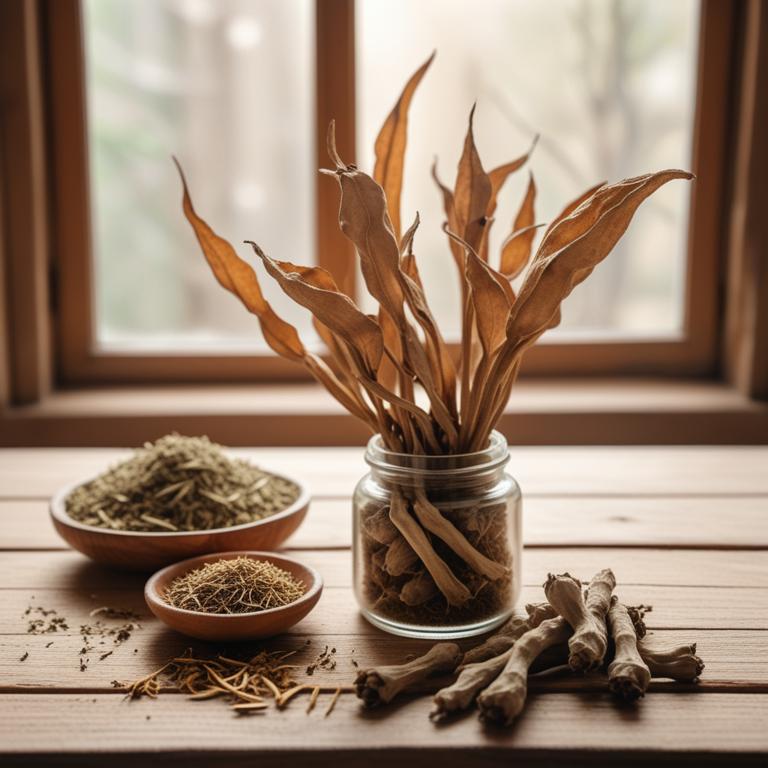Updated: Dec 1, 2024
Causes and Herbal Remedies for Toothache Pain
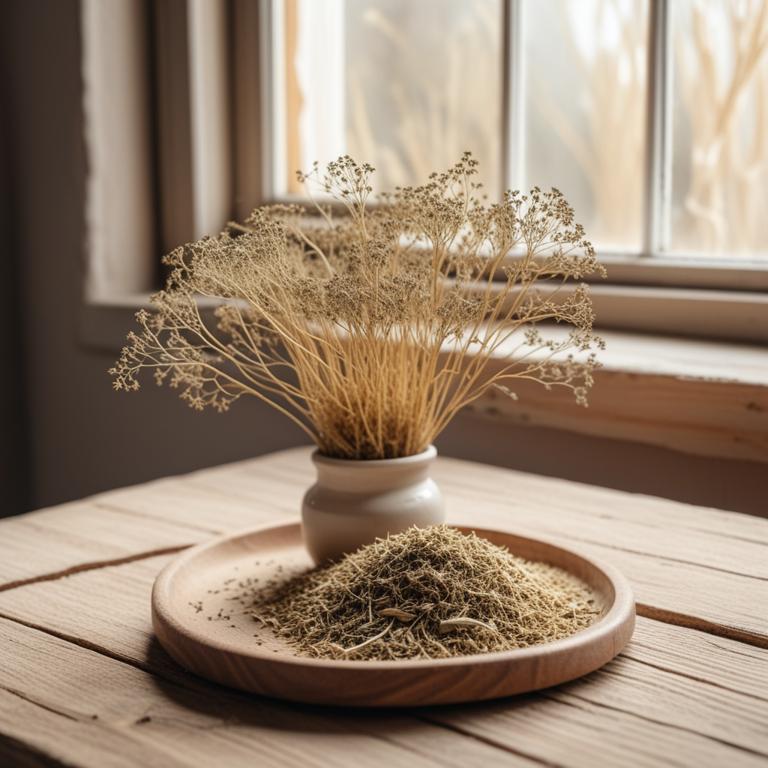
A toothache can be a painful and frustrating experience that affects every aspect of your life.
It's that sharp, throbbing sensation in your tooth that makes it hard to eat, sleep, and even concentrate. Toothaches are usually caused by a bacterial infection, a cracked tooth, or gum disease, and can be triggered by poor dental hygiene, a bad diet, or even grinding and clenching your teeth. Toothaches can be a real nuisance, but there are some herbal remedies that may help alleviate the pain and discomfort. Certain herbs like clover, chamomile, and calendula have anti-inflammatory properties that can help reduce swelling and ease pain.
These herbs can also help soothe an irritated tooth and gum. To use these herbs for toothache relief, you can make a tea by steeping the dried flowers or leaves in hot water. You can also add a few drops of clove oil to your tea for extra pain relief. Some people even use a mouthwash made from calendula and chamomile to rinse their mouth and soothe their gums.
These herbal preparations can be a natural and effective way to manage toothache pain, especially when used in conjunction with good dental hygiene and regular check-ups with your dentist.
Table of Contents
What are the reasons for toothache?
The main causes of toothache are related to problems with the teeth, gums, and surrounding tissues.
Pulpitis is the inflammation of the pulp, which is the soft tissue inside the tooth containing nerves and blood vessels. This usually happens due to bacterial infection from dental caries (cavities) or cracks in the tooth. When bacteria infect the pulp, it causes pain and discomfort. Another cause is the Periapical cyst, a fluid-filled sac that forms at the tip of the tooth root. This cyst is usually a result of an infected pulp or tooth decay. The pressure and inflammation from the cyst can cause pain and sensitivity in the tooth. Dental caries, or tooth decay, is another common cause of toothache.
When bacteria in the mouth break down the sugars in food and drinks, they produce acid that damages the enamel and dentin of the tooth. This can lead to pain, especially if the decay reaches the pulp. Gingivitis and periodontitis are gum-related causes of toothache. Gingivitis is the inflammation of the gums, usually due to poor oral hygiene and plaque buildup. If left untreated, gingivitis can develop into periodontitis, a more severe infection of the gums and bone surrounding the teeth. Both conditions can cause pain and sensitivity in the teeth and gums. Finally, an abscess can cause a toothache. An abscess is a pocket of pus that forms as a result of a bacterial infection.
It can occur in the gum or around the root of the tooth, causing pain, swelling, and potentially serious complications if left untreated.
What are the benefits of utilizing herbs to cure toothache?
Using herbs for toothache can be a great alternative to traditional pain relief methods.
One of the main benefits is that they are often anti-inflammatory, which means they can reduce swelling and ease the pain. This can be especially helpful if you have a toothache that's causing your face to swell.
Herbs can also be antibacterial, which helps to kill the bacteria that's causing the infection in the first place. By killing the bacteria, herbs can help to prevent the infection from spreading and causing more problems. Some herbs can even numb the area, providing quick relief from the pain.
Additionally, herbs are often gentle on the body and don't have harsh side effects like some medications can.
What are the principal medicinal herbs used to remedy toothache?

Herbs have been used for centuries to relieve toothache pain, and they can be a great alternative to traditional painkillers.
One of the most effective herbs for this purpose is Zingiber officinale, also known as ginger. It contains compounds like gingerol and shogaol, which have anti-inflammatory properties that can help reduce swelling and pain in the gums and teeth. Echinacea purpurea is another herb that can help alleviate toothache pain. It has antibacterial properties that can fight off infections and reduce inflammation. This can be especially helpful if you have an abscessed tooth or a gum infection. Mentha x piperita, or peppermint, is a natural analgesic that can help numb the pain in your teeth and gums. It also has antibacterial properties, which can help prevent infections from taking hold.
Peppermint oil can be applied topically to the affected area to provide quick relief. Eucalyptus globulus, or eucalyptus, is another herb that can help ease toothache pain. It has anti-inflammatory and antibacterial properties, which can help reduce swelling and fight off infections. You can inhale the vapors of eucalyptus oil or apply it topically to the affected area to get relief. Melaleuca alternifolia, or tea tree oil, is a natural antiseptic that can help fight off infections and reduce inflammation. It has antibacterial properties that can help prevent the spread of infection and promote healing. You can apply tea tree oil topically to the affected area to get relief from toothache pain. These herbs can be used in various forms, such as teas, oils, or tinctures, to provide relief from toothache pain.
They can be used individually or in combination with other herbs to get the best results.
What are the most common herbal remedies for toothache?

Herbal preparations can be a great way to manage toothache pain.
A decoction is a liquid made by steeping herbs in hot water. For toothache, you can use decoctions of cloves, ginger, or wintergreen, which have anti-inflammatory properties that help reduce swelling and ease pain. Another option is to make a tea from herbs like chamomile, lavender, or peppermint. These teas can be applied directly to the affected tooth or swallowed to help calm the pain and reduce inflammation. If you prefer a more concentrated form, you can use a tincture. Tinctures are liquid extracts of herbs that are usually taken in small amounts.
Tinctures of cloves and wintergreen can be applied directly to the tooth with a cotton ball to numb the pain. For external use, a salve is a great option. Salves are topical creams or ointments that can be applied directly to the affected area. Salves made from herbs like clove, eucalyptus, and peppermint can help reduce pain and inflammation, and also provide a cooling sensation. Finally, if you prefer to swallow your herbal medicine, you can take it in capsule form. Capsules of herbs like myrrh, clove, and wintergreen contain the active ingredients that help reduce pain and inflammation.
Always consult with a healthcare professional before trying any new herbal remedies, especially if you have sensitive teeth or other health conditions.
Additional Resources:
Which herbs are contraindicated in cases of toothache?
If you have a toothache, you should be careful with certain herbs.
Capsicum annuum, or cayenne pepper, is too spicy and can make your mouth and throat even more painful. This can irritate your toothache and make it harder to manage the pain.
Rosmarinus officinalis, or rosemary, has a strong flavor and can make your mouth feel dry and sore, which isn't good when you're trying to recover from a toothache. Cinnamomum verum, or cinnamon, is also very spicy and can exacerbate the pain in your tooth. Piper nigrum, or black pepper, is similar to cayenne pepper in that it's too spicy and can irritate your mouth and throat.
Curcuma longa, or turmeric, contains a chemical that can make your mouth feel warm and numb, but this can also make it harder to manage the pain in your tooth.
FAQ
Are there any specific herbs that can prevent toothache?
Some herbs, like clover and chamomile, have anti-inflammatory properties that may help ease toothache pain.
The active compounds in these herbs can reduce swelling and kill bacteria. Clove oil is also commonly used for its numbing effect.
These herbs can be used to make teas, toothpaste, or mouthwashes to help alleviate toothache symptoms.
Is it safe to use herbal remedies for toothache during pregnancy?
Using herbal remedies for a toothache during pregnancy can be tricky.
Some herbs, like clove and chamomile, have been used for pain relief, but their safety for pregnant women isn't well understood. If you're considering using herbal remedies, make sure to check the ingredients carefully and follow the instructions.
It's always a good idea to err on the side of caution.
Are there any herbs that can reduce the frequency of toothache?
Some herbs like clove and chamomile have been used for centuries to help ease toothache pain.
Clove oil, in particular, contains a compound that numbs the area, making it a popular natural remedy.
Chamomile's soothing properties may also help reduce inflammation and calm the nerves, making it a potential natural solution to reduce toothache frequency.
Related Articles
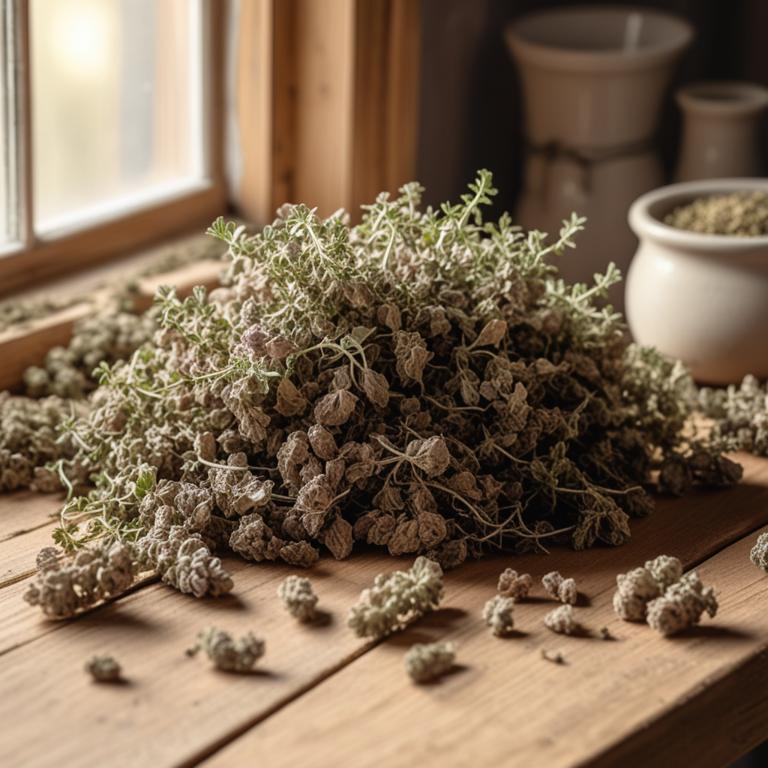
Open Pores: The Causes, Medicinal Herbs, and Herbal Remedies for Healthy Skin
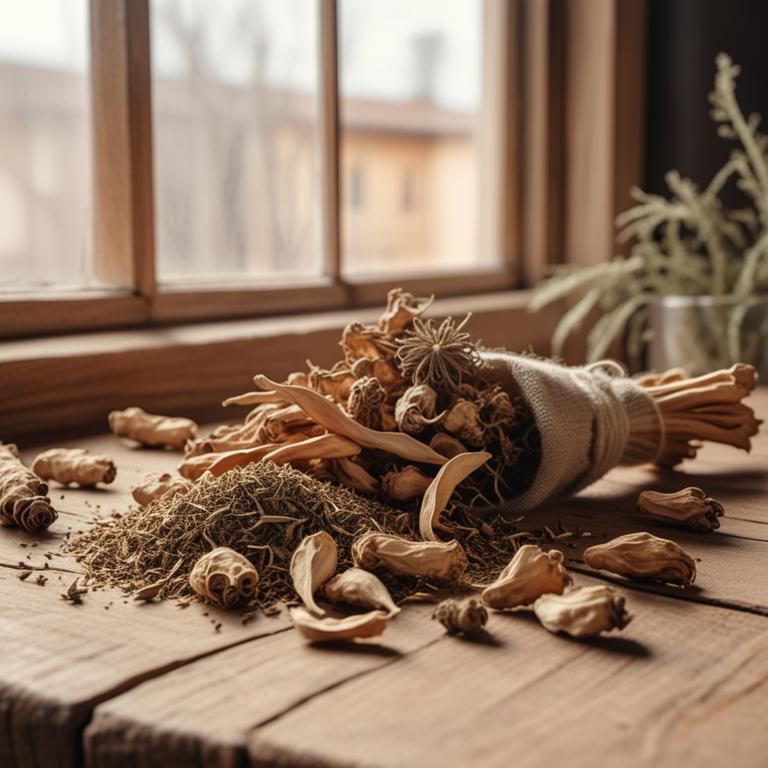
Fever Blister on Lip: Causes, Herbal Preparations, and Home Remedies for Relief

Causes, Herbal Solutions, and Preparations for Mouth Ulcers

Managing Body Odor with Medicinal Herbs and Herbal Remedies
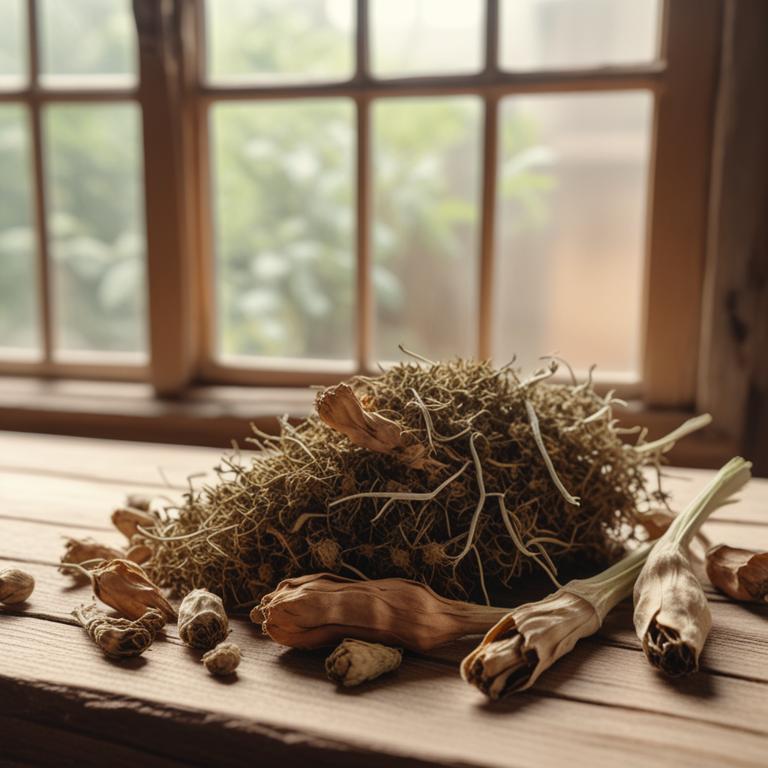
Fungal Skin Infection: Causes, Treatment with Medicinal Herbs, and Prevention




